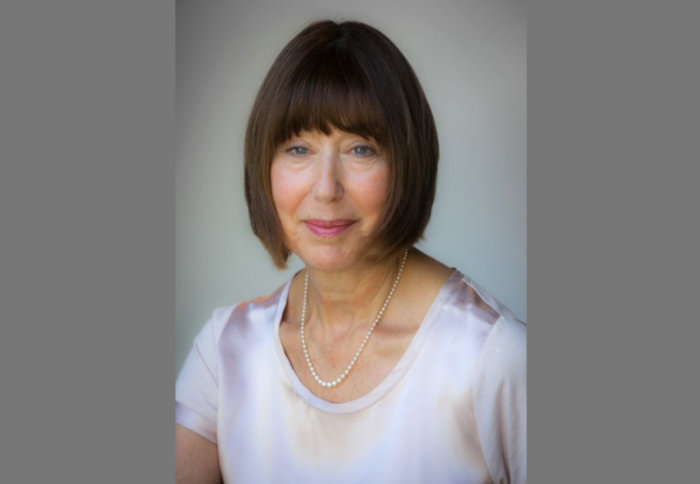Obituary: Professor Wendy Atkin OBE 1947-2018
by Debbie Oram

Professor Wendy Atkin OBE
Colleagues pay tribute to an exceptional scientist who made remarkable and lasting contributions to the field of cancer screening and prevention.
- Fellow of the Academy of Medical Sciences, 2015
- Order of the British Empire, Services to Bowel Cancer Prevention, 2013
- Bengt Ihre Medal, Swedish Society of Medicine, 2012
- BSG President’s Medal, British Society of Gastroenterologists, 2011
Tributes have been flowing after the announcement of the passing of Professor Wendy Atkin on 2 October 2018.
Wendy graduated from the Chelsea School of Pharmacy, University of London in 1968 and worked as a Clinical Research Executive for the Wellcome Foundation and the pharmaceutical industry for more than 10 years. She subsequently completed a Master’s degree in Public Health (Epidemiology) at Columbia University, New York in 1984.
Back in London, Wendy worked for the Imperial Cancer Research Fund (ICRF) and then became a clinical research fellow at St Mark’s Hospital (at the former City Road, London site then at Harrow), and was awarded a PhD from University College London in 1991 for her research on the long-term risk of colorectal cancer following the removal of adenomas. From here Wendy’s career went from strength to strength and her research practice saw her join the Cancer Research UK Colorectal Cancer Unit at St Mark’s Hospital in 1995, becoming Deputy Director of the unit in 1997. This same year she was made an Honorary Senior Lecturer at Imperial College London followed by a Reader in 2000 and a Professor of Gastrointestinal Epidemiology in 2004.
Impact of UKFSST Trial and Screening
In 1994, Wendy established the UK Flexible Sigmoidoscopy Trial (UKFSST), a large randomised controlled trial of 170,000 men and women that would ultimately and unequivocally demonstrate the benefit of flexible sigmoidoscopy on colorectal cancer prevention. Wendy ensured that every aspect of the trial delivery was designed to guarantee the success of the research. The main findings of the UKFSST were published in The Lancet in 2010 and reported that 11 years after a single flexible sigmoidoscopy screening, colorectal cancer incidence was reduced by a third and mortality by 43%. Professor Atkin had demonstrated a breakthrough model for delivery of flexible sigmoidoscopy screening that was of high quality in terms of safety and yield of significant neoplasia.
As a result of Wendy’s tireless efforts and the publication of the main findings of the UKFSST, a £60m investment over four years was announced by the government to incorporate screening into the nationwide Bowel Cancer Screening Programme. Flexible sigmoidoscopy screening was approved by the UK National Screening Committee in 2011 and roll-out began in 2013.
In 2002, Professor Atkin developed the first UK guideline on colonoscopy surveillance for people with colorectal adenomas. This was adopted as the UK standard, and adopted by NICE and with slight modification, by the EU. These guidelines are still in use today.
Improving the Quality of Life
After moving to the Department of Surgery and Cancer at the St Mary’s campus in 2008, Wendy established the Cancer Screening and Prevention Research Group (CSPRG) which she led until mid-2018 when she retired from the college as an Emeritus Professor due to ill health. This group allowed Wendy to develop interventions and focus on colorectal cancer screening, surveillance of people at increased risk and early diagnosis with the ultimate aim of reducing the incidence and mortality of the disease. Her vision and achievement, which will continue to live through the CSPRG are testament to her dedication in translating her research into clinical practice and improving the quality of life of cancer patients and the general public.
Throughout her career, Wendy led a portfolio of large research projects funded by the government, charitable, research council and international bodies. Her research has made significant impact on the UK’s colorectal screening and surveillance strategy. Wendy was always keen to disseminate the findings of her research to as wide an audience as possible and was known for her engaging speaking style and ability to adapt her presentations to suit her audience. She was a regular speaker over many years at cancer conferences in the UK, Europe and the USA and actively involved with educational days for clinicians and nurses in both primary and secondary care. Her many engagement activities brought Wendy into contact with patients, carers and members of the public as well as members of parliament and CEOs of cancer charities. She also gave guidance and advice to other countries on their colorectal cancer screening programmes; and in addition to colorectal cancer, she also engaged with those working in breast and pancreatic cancer screening.
An Exceptional Scientist
The quality and impact of Wendy’s research has been recognised in multiple ways, including the consistent funding obtained over many years, multiple high impact publications, including several in The Lancet, as well as through the effect the research has had on national and international guidelines and, consequently, on the general population and on patients.
Professor Atkin has truly been an exceptional scientist and her remarkable contributions to the field of cancer screening and prevention have been recognised by all. She cared deeply about the people who worked with her and for her and they returned her respect and affection.
Without a doubt, Wendy leaves a legacy that is nothing short of outstanding and is one that will continue to grow within future research for many years to come as part of her continued vision.
This piece was produced and contributed to by all members of the Cancer Screening and Prevention Research Group (CSPRG).
Article text (excluding photos or graphics) © Imperial College London.
Photos and graphics subject to third party copyright used with permission or © Imperial College London.
Reporter
Debbie Oram
Faculty of Natural Sciences